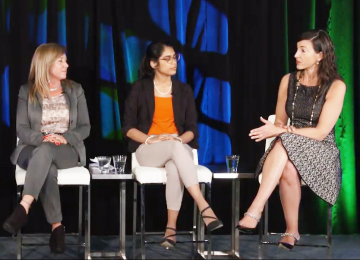
On December 6, 1989, 14 women were murdered at École Polytechnique in Montreal, QC, when a gunman entered the engineering school and targeted and shot women saying he was “fighting feminism.” Twelve of the women killed were engineering students.

On December 6, 1989, 14 women were murdered at École Polytechnique in Montreal, QC, when a gunman entered the engineering school and targeted and shot women saying he was “fighting feminism.” Twelve of the women killed were engineering students.
In the aftermath of the deadliest mass shooting in Canadian history, Parliament declared December 6 as the National Day of Remembrance and Action on Violence Against Women. December 6 is a day each year when we commemorate the lives and potential lost in the tragedy of the Montreal Massacre and other incidents of gender-based violence. It’s also a day to consider how each of us can take action to combat gender-based violence.
This year, thirty years after the events of December 6, 1989, Engineers Canada hosted a panel discussion about the Montreal Massacre and the effects it had on the engineering profession. Engineers Canada President David Lynch served as moderator and was joined by panellists:
- Sandra Gwozdz, Engineers Canada Board Director, and 1991 graduate of École Polytechnique
- Ved Proag, Project Manager, Infrastructure Planning, City of Ottawa, and Vice-Chair, PEO Ottawa Chapter
- Julie Lassonde, President and CEO of Lassonde Capital, and President of the Canadian Engineering Memorial Foundation
The panellists recalled their experience being women in engineering around the time of the École Polytechnique shooting, the effect the shooting had in motivating them even more to succeed in engineering, and what more still needs to be done to ensure engineering is a welcoming career for everyone. Highlights from the panel discussion can be viewed in the videos below.
Engineers Canada also partnered this year with Engineering Deans Canada to launch 30yearslater.ca. To commemorate the tragedy of December 6, 1989, and to promote the outstanding work of female engineers across Canada, Engineering Deans Canada invited each of the Canadian engineering schools that offered an accredited engineering program in 1989 to put forward the story of an engineering alumna who graduated within three years of the massacre and whose career exemplifies the value that women bring to the engineering profession and to society. The 30 profiles can be viewed at 30yearslater.ca.


